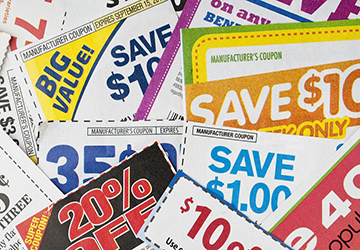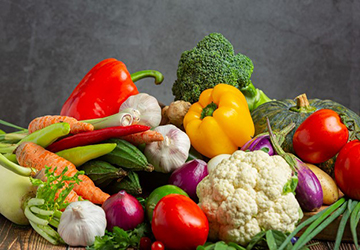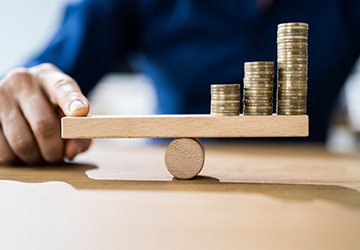How to Cut Grocery Bills in Half: 10 Money-Saving Tips
Managing food spending may be difficult, particularly when attempting to stay within a budget. With the appropriate tactics and mentality, you can decrease your shopping expenses in half while maintaining the quality and diversity of your meals. In this article, we will look at ten excellent economical methods that can help you get control of your food spending and save significantly.

1.Plan and Prepare Before You Shop
Before you go shopping, plan your meals for the week. Create and stick to a thorough shopping list based on your food plan. This will keep you from impulse purchases and guarantee you only buy what you need.
2.Compare Costs and Shop Wisely
Practice comparing store costs and taking advantage of weekly flyers, discounts, and loyalty programs. Consider purchasing generic or store-brand items, which typically give the same quality at a reduced cost.
3.Accept Meal Prepping and Batch Cooking
Meal preparation and batch cooking can help you save time and Cash. Make bigger batches of meals and freeze them in portion-sized containers for later use. Avoid last-minute takeaway or pricey convenience foods this way.
4.Consider Bulk Purchase
Bulk purchases of non-perishable products such as grains, beans, and spices can result in significant discounts. Look for bulk bins or consider joining a wholesale club to take advantage of lower pricing.
5.Use Seasonal Produce
Seasonal fruits and vegetables are not only fresher but also less expensive. To get the most excellent bargains on seasonal food, go to farmers' markets or local farms. Excess vegetables can also be frozen or preserved to be enjoyed throughout the year.
6.Reduce Your Consumption of Processed and Prepared Meals
Processed and prepared meals are generally more expensive. Choose whole, unprocessed foods and cook from scratch. Not only will you save Cash, but you will also have greater control over your meals' nutritional value and quality.
7.Reduce Meat Consumption
One of the most expensive items in a shopping budget is meat. Consider eating more plant-based meals or experimenting with different protein sources such as beans, lentils, heart, or eggs. These solutions are not only cost-effective, but they also provide a variety of health advantages.
8.Reduce Food Waste
Food waste not only hurts your budget but also adds to environmental issues. Plan your meals around what you currently have in the cupboard and refrigerator. To increase the shelf life of food, use leftovers creatively and store them correctly.
9.Utilize Coupons and Cashback Applications
Coupons and Cashback applications can help you save Cash on your supermarket purchases. Look for digital coupons, print coupons, and shopping cashback incentives. Make use of mobile applications that provide cashback or loyalty points that can be used for discounts or free purchases.
10.Start a Small Garden or Grow Your Herbs and Veggies
Consider beginning a small garden or growing your herbs and veggies. Even with limited room, herbs, and tiny potted plants may be cultivated inside. You will not only enjoy fresh vegetables, but you will also enjoy the satisfaction of growing your food.

Why should you Save Cash?
Saving Cash is an essential financial practice with several advantages and is vital in establishing long-term financial stability. Here are a few reasons why conserving Cash is necessary:
· Save for Future Bills
Saving Cash serves as a safety net for unforeseen bills and crises. Having an emergency fund assists you to avoid getting into debt by covering unexpected medical expenditures, home repairs, auto repairs, or job loss.
· Become Financially Independent
Saving Cash gives you the ability to become financially independent. Developing a sizable savings account may lessen your dependency on credit cards and loans, freeing yourself from debt and the stress that comes with it.
· Future Goals and Aspirations
Saving Cash enables you to work towards your long-term goals and dreams. Whether buying a home, establishing a business, or taking a dream vacation, having funds allows you to make your dreams a reality.
· Save for Retirement
Saving for retirement is critical to ensuring a pleasant and secure future. You may establish a nest egg for your retirement years by contributing to retirement accounts regularly.
· Financial Freedom
Financial freedom and peace of mind are provided by saving Cash. It enables you to make decisions based on your economic well-being rather than being constrained by financial limits.
· Unexpected Life Events
Life is full of surprises, and having savings may help you deal with them, such as a medical emergency, job loss, or a significant life shift. Having a financial buffer allows you to deal with these issues more efficiently and with less worry.
· Opportunity and Investment
Saving Cash allows you to invest and expand your fortune. You can create passive income and achieve financial progress over time by putting your Cash to work through investments.
· Reduce Stress and Improve Mental Health
Financial stress has negatively influenced mental health and general well-being. You may minimize stress and enhance your mental health by conserving Cash and building financial security.
· Financial Preparedness
Saving Cash allows you to be financially prepared for unforeseen events. It gives you the tools to get through difficult times and prevents you from being caught off guard by financial difficulties.
· Peace of Mind
Saving Cash, in the end, brings peace of mind. It gives you a sense of security since you know you have a financial buffer and are prepared for the future.
Conclusion
Following these ten economic suggestions, you may dramatically cut your shopping expenses while maintaining quality and variety. You can control your food spending and save Cash by planning your meals, embracing handmade and seasonal choices, and practicing mindfulness. Remember that tiny adjustments may make a huge impact, so adopt these suggestions immediately and reap the advantages of a healthier, more cost-effective lifestyle.
Related Article

The Impact of Inflation on Your Investments: How to Protect Your Wealth

Top 10 Financial Planning Tools for Money Management

Investing in Cryptocurrencies: Risks, Rewards, and Best Practices

The Power of Compound Interest: Unlocking the Benefits for Long-Term Wealth

How to Increase Your Credit Score: Practical Steps
